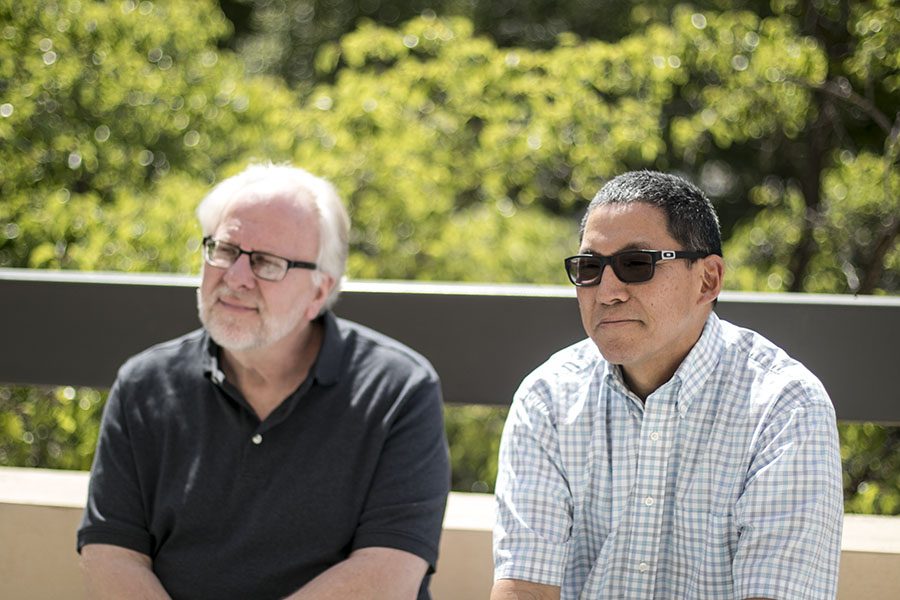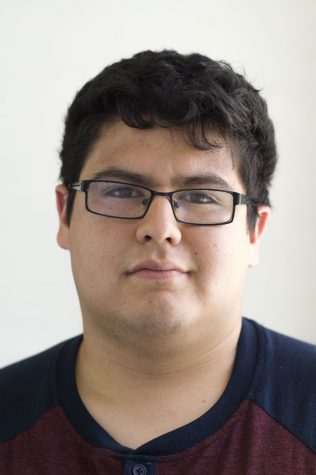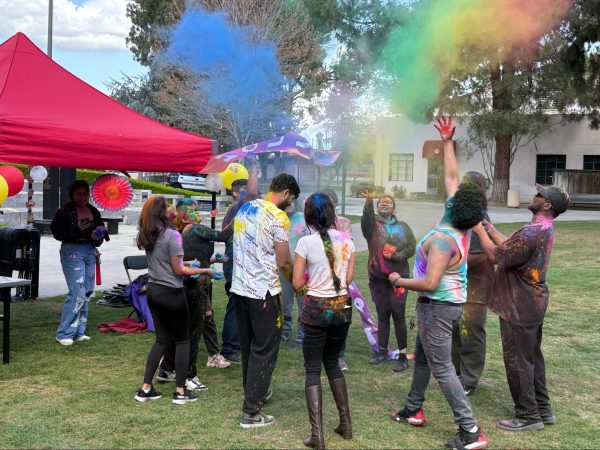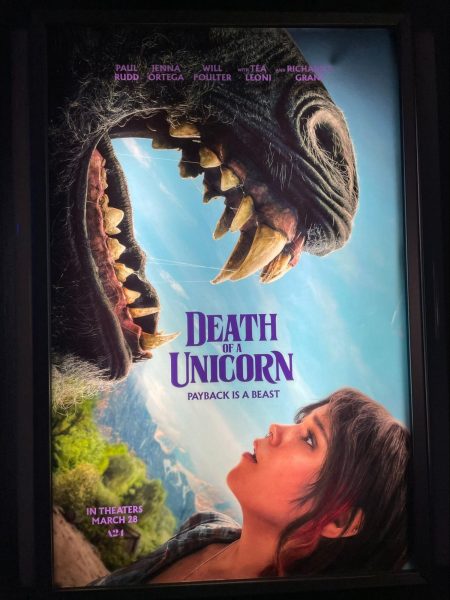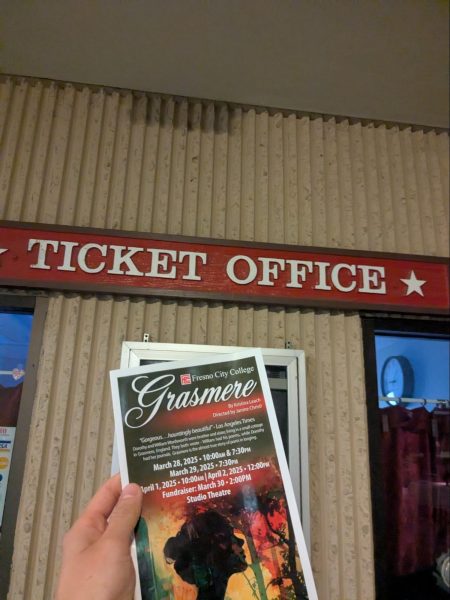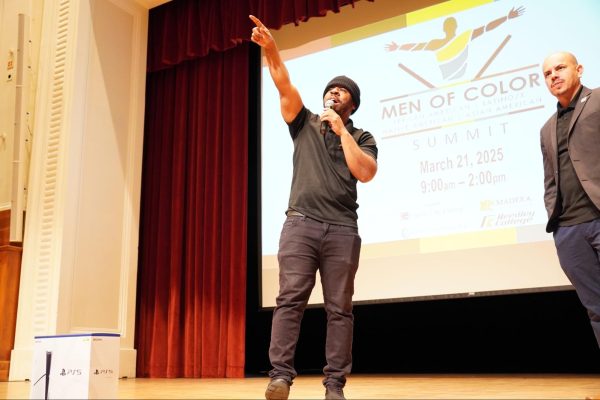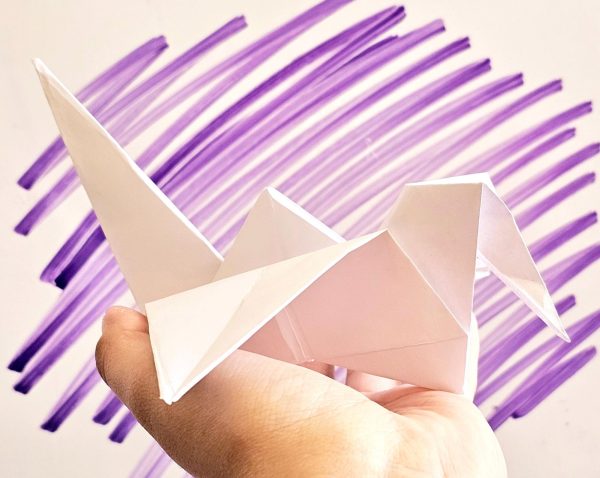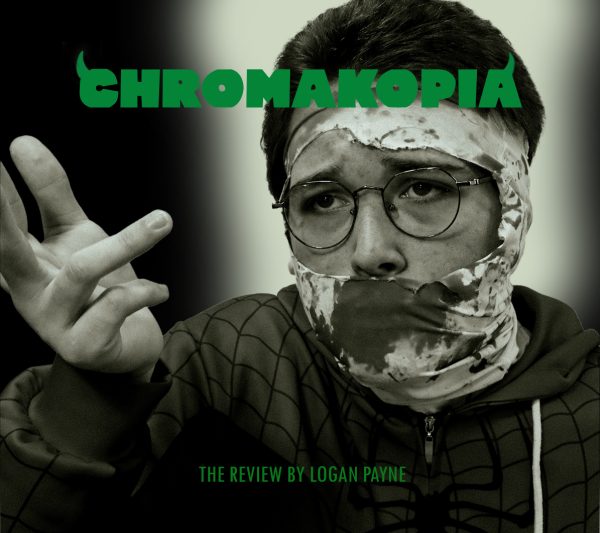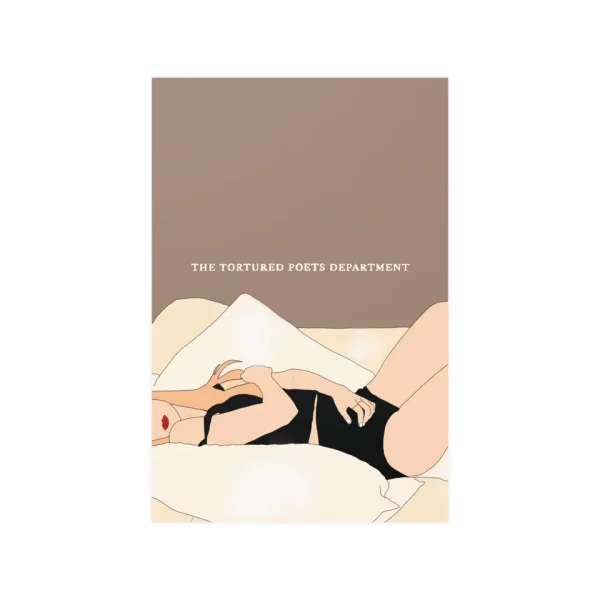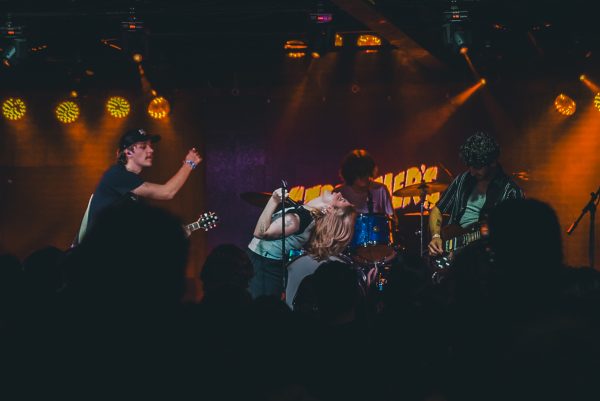Retiring Music Legends Reflect on Their Careers
Photo by: Larry Valenzuela
From left, Mike Dana and Larry Honda reflect on their careers as music instructors at Fresno City College.
As music instructors Mike Dana and Larry Honda prepare to retire after this semester, the Rampage asked the pair to reflect on their legacies. Dana has taught at Fresno City College for 28 years, and Honda for 21.
When you two look back at your first day here at FCC, how do you compare that time to now? What accomplishments jump to your mind?
Mike Dana: When I started, I don’t think I knew how complicated everything was going to be because I was coming here and was going to teach jazz classes. And there’s that whole process of where do you go to get a bus to a festival, and how do you do this and who signs that form. So I think there was kind of a really big learning curve, so that was my first week’s impressions. And as far as accomplishments, I just look at what all of our students have done and how they’ve gone on to be great performers, great teachers or they’re continuing their education. That means a lot to me, looking back seeing that happen.
Larry Honda: For me, I was coming from teaching K-12 — everything from little children to the marching band, but that was junior high and high school. Coming here to a college, that was a whole different situation. I felt that as a teacher, I was treated more professionally by the administration, but also the students because they all had very-set goals and that changed my attitude because when you’re teaching public school music, it’s like giving them the experience and that’s your goal. Now, it gets a little more serious because students are looking towards their future career. I felt a responsibility to instruct them in the subject matter but also as time went on, even to try to provide whatever counseling I could for their futures.
How would you two describe working together as fellow music instructors here at FCC?
Dana: If we weren’t coworkers here, we would still be playing music together. I think our work here together is a reflection of us enjoying a lot of the same types of music and we have a lot of the same circle of friends, and we find ourselves at a lot of the same gigs. So it makes work feel less like work to me.
Honda: Yeah, we have known each other as musicians for many years. He was here before I was, so once I got here, then we became colleagues as far as teachers, so now, the depth of our sharing was a lot more [prominent]. The things that we have here at school, everything from teaching the students [and] the subject matter but also how the department was run, Mike was the department chair, so we were working in that way. Just the things that are involved in teaching at a college, I feel like I got close with Mike in that regard too. But there was always the music part, so we share a lot of similar experiences here.
What were your goals in instructing students through the years to become the best musicians they could be?
Honda: Well, I wanted to help them achieve their goals because they come with certain ideas for goals. Sometimes, they don’t have an idea and I hope to steer them in the right direction there in anyway I can. It may be specific things in regards to music. For example, teach the woodwinds so they would want to learn how to play their saxophone better or learn music theory better. But then there’s other things too. There’s a lot that I don’t know about the students as far as their life and I try to support them as much as I can.
Dana: All of the music faculty here, [we] do our absolute best to instruct students in how to be a better guitar player, saxophone player, vocalist whatever it might be. Then there’s also that bit about music that’s about being professional, [such as] being on time and prepared for things. I know that sounds like someone’s dad talking, but it really is true. You can’t be successful if you don’t do those things. We had a student that was a percussionist here, and she would always say that her goal in life was to be a percussionist with a great Broadway or traveling show and she’s now the percussionist with “Hamilton”. She’s going all over the place doing exactly what she always dreamed of doing and all of us here – not just Larry and I – but all of us helped in some way with that. It’s a pretty cool feeling.
What do you hope your last group of students here at FCC take with them by the end of the semester?
Dana: Well hopefully, none of the instruments.
Honda: [laughs] That’s a good one.
Dana: I hope that they look back at their time here and feel like as they are getting ready for, let’s say transferring to another school, I hope they look back and say, “You know, the people at Fresno City College really got me ready to do that. I’m ready to take on the next thing.” And I hope they look back and go, “Wow, I got to play in Mr. Honda’s woodwind ensemble,” and “I got to play in the jazz band,” and “I got to go on this trip and/or that festival.” Part of it is having great experiences and also being prepared for the next thing.
Honda: I think once they leave here and they look back, I hope that felt that they are prepared for that next level even more so than other folks. That would be really great. [I hope] that they had really great experiences here whether it is playing in groups or in the classroom or maybe just a conversation with an instructor. That’s all we can ask.
Given music will always be part of your lives, what are your plans after this semester?
Honda: After this semester, I am going into retirement and so is Mike. I don’t have any set exact plan. I am at least hoping to continue what I’m doing. I substitute in the Fresno Philharmonic, but one thing I know for sure is yesterday I found out the show “The Book of Mormon” is returning to Fresno, and I played in the pit orchestra when it first came. I was asked to play again, so that’s something definite there. Mike plays at the jam session down in Tokyo Gardens and I couldn’t feel like getting out to go because I teach an 8 a.m. class on Mondays and I’ve been doing that forever. So that would be one thing on my bucket list; I’d like to go there more often knowing that I can sleep in the next day. Those are the things I do now, but I’d like to do more because I’ll have more time to do them.
Dana: When I was a college student, I would practice two or three or four hours a day. As an instructor, I never have time to do that so my plan is to keep composing music, practice a whole lot and continue to do some international teaching. So traveling, teaching, playing and trying to find time for all the things I didn’t have time for when I was a full-time professor.
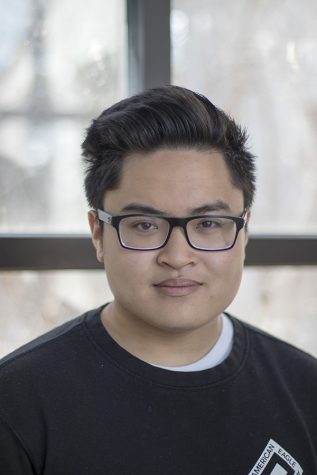
Noah Villaverde is a 21-year-old who currently resides in Fresno, California and is a Mass Communications and Journalism major at Fresno City College....

